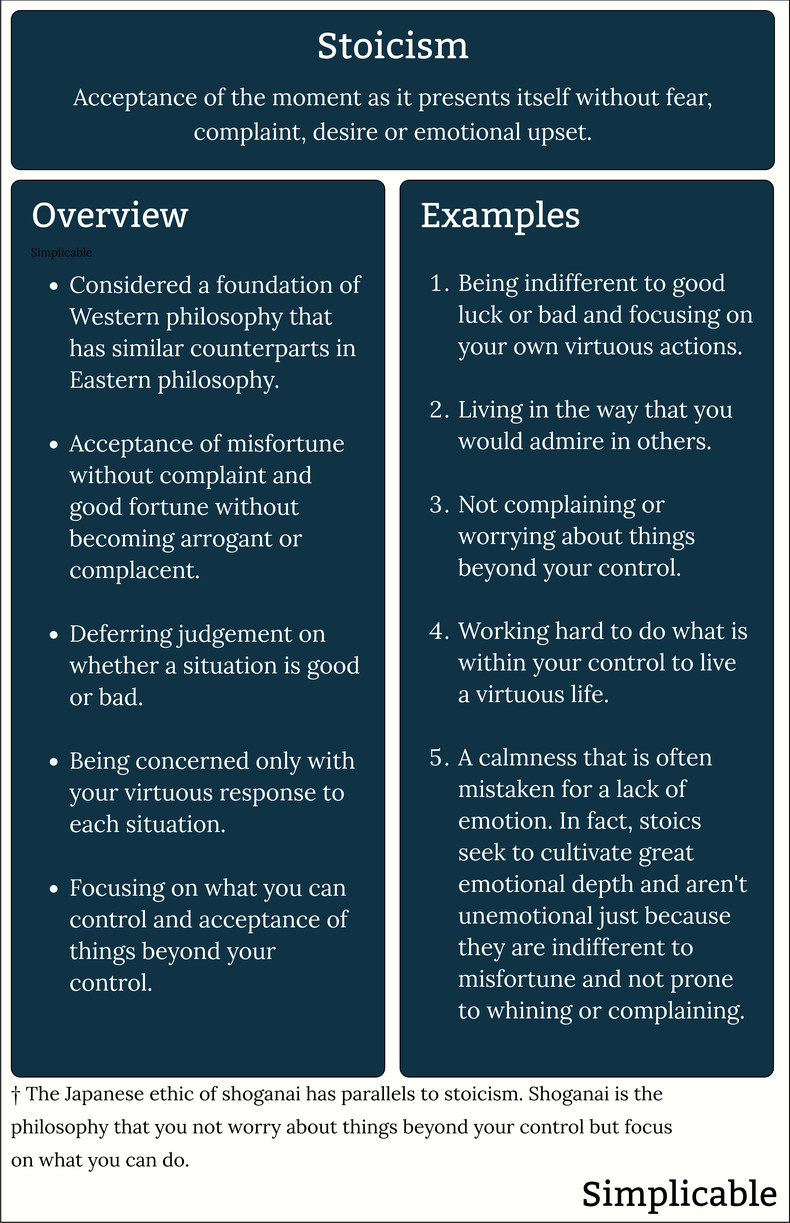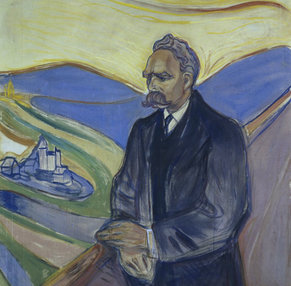
Virtue
Stoicism is the idea that virtue is enough to create happiness. Whether you are presented with good or bad fortune is irrelevant because it is only your virtuous response to the situation that matters. The four cardinal virtues of stoicism are wisdom, courage, justice and temperance.Stoic Calm
As stoics are ideally only interested in virtue and this is fully within their own control they do not complain or show emotion when presented with situations that others would find stressful. A stoic response to hardship has long garnered great respect in western societies. This was challenged in the 1960s with the hippie movement that embraced openly sharing the most private of emotions and thoughts. As such, there may be something of a decline in the view that stoicism is a positive thing with the common assumption emotions need to be socialized in order to solve problems. Stoicism is also at odds with the modern tendency to express every thought, like, dislike, complaint and desire in social media.Capable
Stoicism views the individual as strong and capable with a duty to defeat tyranny. Critics of stoicism may argue that this places too great an expectation on individuals that is unrealistic. The idea of the strong and capable individual is commonly deprecated in contemporary thinking that may view the individual as a powerless victim of society, circumstances or history.Desire
In theory, stoics only desire virtue and view elements such as wealth, fame, recognition, reputation, comfort, safety, excitement, adventure and convenience as mediums for virtue. For example, a stoic would not desire to win a lottery or celebrate winning it but would view it as a challenge to be faced with virtue such as using the money to help people.Cosmopolitanism
Stoic philosophy is associated with cosmopolitanism and the belief that all people are citizens of the world. The ancient stoics held the view that differences such as race, nationality, gender, rank and wealth were meaningless to social interaction and society.Reason
Stoics view some emotions such as anger as failures of rational thought. Stoicism is associated with logic and rational inquiry to discover knowledge. Early stoic philosophers founded systems of logic and schools of physics. It should not be assumed that stoics are opposed to emotion as they viewed emotion as a complex and worthy form of human potential.Shoganai
Philosophy resembling stoicism can be found in Eastern civilization in cultures influenced by Confucianism. For example, the Japanese idea of shoganai that suggests that it is futile to complain or be emotional about things beyond your control. Shoganai can be translated "it can't be helped" or "certain things must be endured." The idea of shoganai can be used to explain the remarkable resilience of Japan with people able to quickly reconstruct from disasters such as wars, earthquakes, typhoon, tsunami and fires without wallowing in self-pity.Summary
Stoicism is indifference to misfortune and good fortune with a focus on doing what you can do to live a virtuous life.
Notes
Contemporary ideas such as personal resilience incorporate elements of stoicism.| Overview: Stoicism | ||
Type | ||
Definition (1) | Acceptance of the moment as it presents itself without fear, complaint, desire or emotional display. | |
Definition (2) | A school of philosophy founded in Greece in the early 3rd century BC by Zeno of Citium who was greatly influenced by Socrates. | |
Definition (3) | The idea that virtue is all that matters such that an individual can be indifferent to good luck or bad luck as it is only their ability to be virtuous in each situation that matters. | |
Related Concepts | ||





















